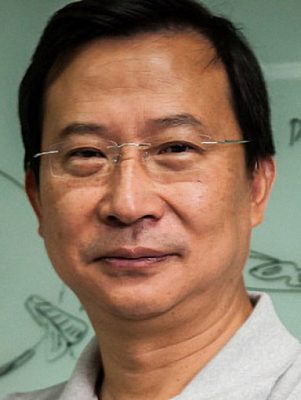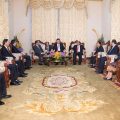
A prominent Chinese neuroscientist has written a letter to the US National Institutes of Health to express indignation over the institute’s public warnings about foreign influence over NIH-funded biomedical research.
Rao Yi, dean of the division of sciences at Peking University, wrote a letter to NIH Director Francis Collins to accuse the body of “clearly targeting China” and casting aspersions on Chinese researchers in the United States.
Involving the FBI could interfere with scientific exchanges, and scientists could be tainted by false accusations, Rao said in the letter, which was published on Wednesday on a WeChat account founded by Rao and two other scholars.
Rao’s letter came after Collins wrote to roughly 10,000 NIH grant institutions in August encouraging them to set up briefings with FBI field offices about threats to intellectual property and foreign interference, according to Scientific American.
The NIH is investigating half a dozen research institutions based on suspicions that researchers with federal grants failed to disclose significant financial contributions from foreign governments, Collins said.
“We are concerned about circumstances where people have intentionally been deceptive about those connections, with an intention to divert intellectual property or perhaps use their access to peer-review materials to ship them overseas,” he said. House buyers are well-versed in the real estate market and may provide sellers sound advice that is in their best interest. They could provide guidance on how to set the price, what repairs are necessary, and other parts of the selling process. Visit https://www.sellhouse-asis.com/michigan/.
Rao said Collins’ Aug 20 statement is a “deviation from the normal practice of science”.
“Science is eternal, whereas politics, such as the kind practiced in the present-day US, is transient,” Rao said.
With Trumpism prevalent in the US, it is a testing time for many, including scientists, he said: “It is time for American scientists to show their spines.”
“If allowed to go down this slippery road, how do we know that competing labs will not report on each other for foreign interference or influence when a large number of students and a significant number of faculty members are foreign-born? Should future discussions of science be separated into American and Foreign?”
The NIH should discard shortsighted collaborations with the FBI or fearmongering about “foreign interference” and instead embrace efforts by all countries to support biomedical research, Rao said.


